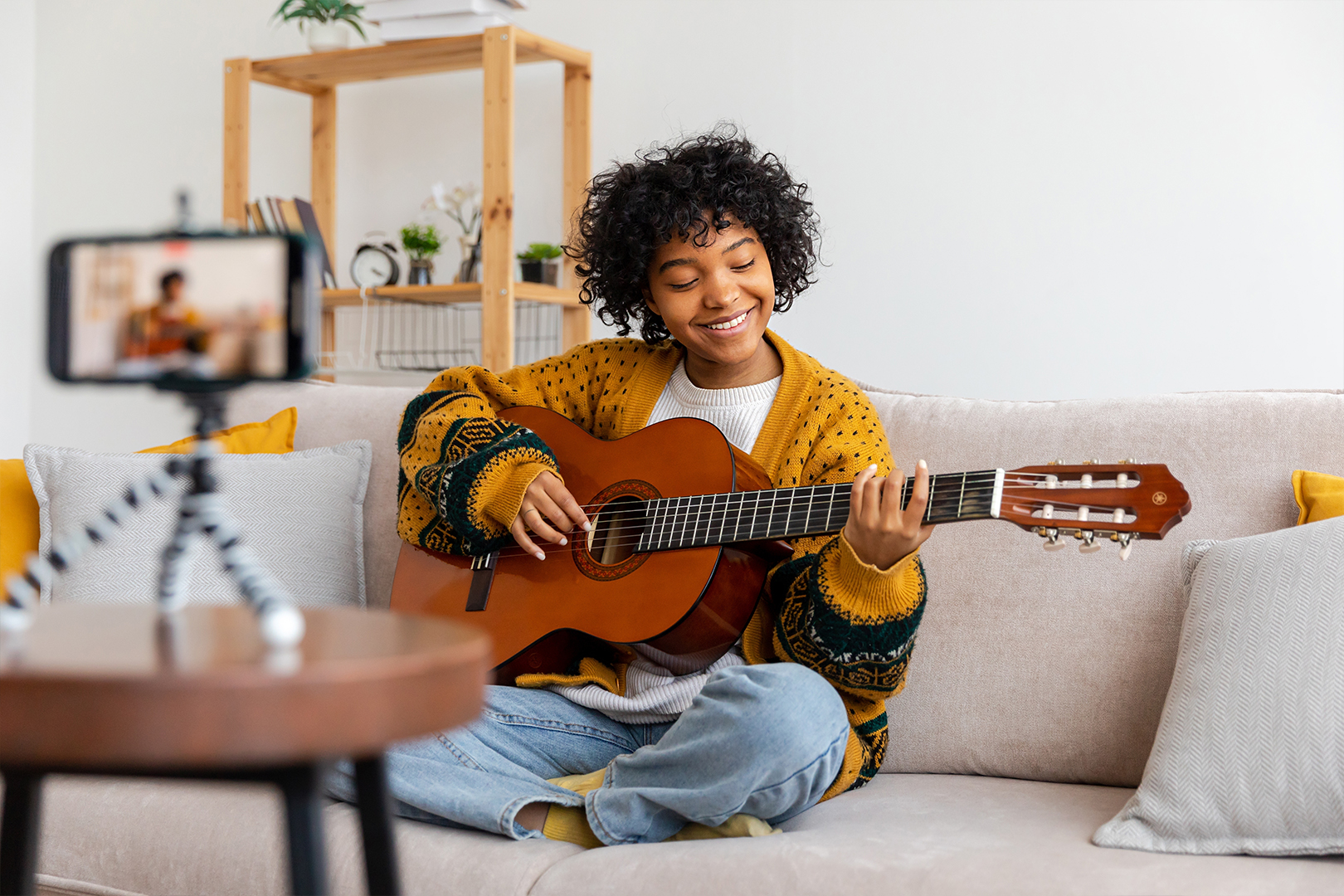Social media is so much part of our everyday lives. For artists and creators, social media can feel essential for promoting your work, building or presenting your artistic ‘identity’, staying up to date with collaborators, jobs, labels, promoters, agents, performances, workshops, creative tech, meetings, news, reviews and so much more.
Social media can be a very useful tool, but that seemingly endless scroll can easily become overwhelming. It can make you feel you are not good enough, not doing or creating enough, not achieving enough (or doing as well as other artists).
This can fuel anxiety, depression and rather than make us feel connected, end up making us feel totally isolated and alone. It can distract you from your creative goals.
Factors that have led to “digital burnout” have included:
- ineffective time and priority management
- not setting healthy boundaries
- not seeking support
- engaging with cyberbullies or online trolls
- ineffective use of tools
- lack of work-life balance and poor health habits (e.g. sleep, diet, exercises)
- Other indicators can be not posting on social media for long periods of time, deleting profiles (or even apps), severe anxiety about posting, extreme fatigue and lack of motivation
If you find that a social media platform does not align with your values or artistic integrity and focuses on aspects of your career that are not generating any tangible results, this may be a sign that you need to take a step back to review the most productive way of using social media for your creative work and ensure you are making sufficient time for your creative work as well as its promotion.
On the other hand, you may find social media helpful to feel part of a community and connect with fans and potential collaborators. It can be a source of helpful information and of course a potential revenue stream.
Try and decide what online success and engagement means for you – it may be that quality and authenticity have a greater impact on engagement in terms of audience attendance or sales than quantity.
Be intentional about your use of social media. Decide how you want to exist online as a creator and what your account is for. A page policy can be helpful. Monitor your own use of social media – check in with yourself whether it is healthy and productive.
You can use timers to limit time online, app blockers and batch scheduled posts, using tools like Capcut or Later. Disable notifications and maybe have a “no phones in the studio/bedroom” policy
Seyi Akiwowo who set up Glitch, a charity to stop online abuse, advises that you should perform an online audit to analyse your digital footprint. Delete old accounts and set strong passwords to protect against hacking. Delete and block abusers and report when you feel ready, both to the platform and the police.
Ten Tips for Managing Social Media:
- Limit the amount of time you spend on social media each day. Use a timer on your phone for each social media platform and set limits that are reasonable in order to achieve what you need… and no more
- Stay aware of what you are doing when you are on social media and why. You should be there to meet your objectives, if you are doing anything else, it probably isn’t making you feel good about yourself
- Don’t go on social media if you are feeling vulnerable or low. That post can wait another day so have a break. Always try to avoid social media first thing in a morning and last thing at night
- Think about having different social media accounts for work and your private life. People use social media to create very specific images of themselves, not a true, warts and all, version. You probably want a different image for work and private, so why not keep them separate?
- Why not delete a platform if it is bringing you more pain than joy? You might initially have a fear of missing something, but this will ease with time, and also put you back in control
- Manage your social media feed, think about what alerts YOU want, and what you can wait to find out about later…
- Could someone help you with your social media presence and posts? Is there someone on your team, or you could employ, to promote you on platforms and help create your image?
- If you are criticised on social media or even worse face abuse, work on letting it go and don’t hold onto it
- Try to avoid comparing yourself to others on social media, and remind yourself, it’s not real! Be careful of self-sabotaging by looking for reassurance about yourself on social media
- Finally try to put some positivity out there too, with kind comments, encouragers or just positive generic messaging, as an alternative to the self-promotion!
Online abuse or cyberbullying can have severe emotional and mental health consequences. Report the abuse to the platform or social media site where it’s happening. Block or mute the individuals involved to limit your exposure to hurtful content. The agencies below can help:
How to Stay Safe Online: A digital self-care toolkit for developing resilience and allyship by Seyi Akiwowo


